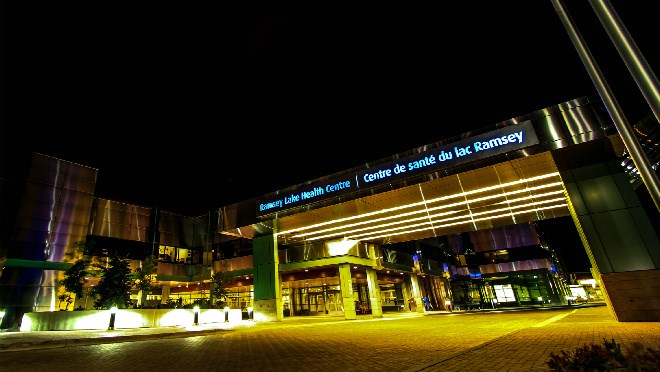Over a six-month period, 10 people accessed Health Science North's emergency department 471 times.
According to data gathered by the North East Local Health Integration Network (LHIN), the 10 individuals struggled with mental health and addictions issues.
In Ontario, about 80 to 90 per cent of the highest emergency department users struggle with addiction or have a mental illness, said Louise Paquette, CEO of the North East LHIN.
“The province has made it a priority for all LHINs to be looking at those high users,” Paquette told Northern Life. “Are people accessing care at the right place?”
To help at-risk patients access the care they need, Health Sciences North established its downtown community crisis services in 2012.
The downtown community crisis services have a team of nurses and social workers available 24 hours a day to help people with mental illness or related issues.
Since 2012, the community crisis services have seen a 62-per-cent increase in patient visits.
Maureen McLelland, administrative director of Health Science North's Mental Health and Addictions Program, said with current resources the downtown community crisis services will eventually not be able to handle the growing demand for mental health support and treatment.
Paquette said that time has not yet arrived, and the North East LHIN continues to watch how uptake of the services progresses.
“Three years ago Health Sciences North had one of the worst alternate level of care numbers in the province,” Paquette said.
Alternate level of care patients are patients who no longer require hospital care but cannot be discharged due to a lack of beds and resources in the community. According to the province's definition, alternate level of care patients “are not receiving the right care in the right place.”
Thanks to initiatives like the downtown community crisis services Health Sciences North has been able to improve its alternate level of care numbers, but patients like the 10 identified by the North East LHIN continue to not receive the right care in the right place.
To help those high-risk individuals, Paquette said the North East LHIN has discussed with its community partners the potential of starting a managed alcohol program in Sudbury.
The harm reduction program would provide chronically ill patients – with severe alcohol dependencies – with controlled amounts of alcohol to prevent binge drinking without quitting altogether.
“These are people who need help and we need to look at a harm reduction model,” Paquette said.
Managed alcohol programs in other cities, such as Ottawa, have proven to reduce the need for emergency services in the community and decrease incidents such as aggressive panhandling.
The programs are coupled with ongoing health assessments and access to counselling, social and clinical services.
Paquette said there are not concrete plans yet for such a program in Sudbury, but the North East LHIN has started early talks with its partners.
@jmigneault
Join Sudbury.com+
- Messages
- Post a Listing
- Your Listings
- Your Profile
- Your Subscriptions
- Your Likes
- Your Business
- Support Local News
- Payment History
Sudbury.com+ members
Already a +member?
Not a +member?
Sign up for a Sudbury.com+ account for instant access to upcoming contests, local offers, auctions and so much more.
